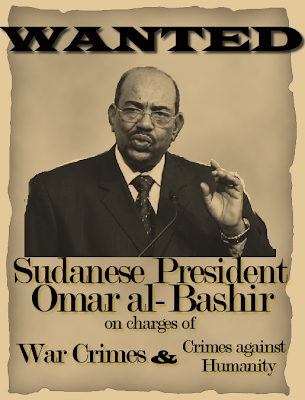 The International Criminal Court (ICC) issued its largest arrest warrant to date when last Wednesday they targeted Sudanese President Omar al-Bashir on charges of war crimes and crimes against humanity for actions that have taken place in Sudan’s Darfur region from 2003-2008. Bashir is alleged to have provided support and ordered the violence in that region of the country which has left over 300,000 people dead and displaced up to 2.5 million people. Due to the actions of Sudan’s Arab population in killing blacks farmers in Darfur, there has also been charges of genocide leveled against Bashir’s regime, although the ICC decided not to issue an arrest warrant with that charge attached.
The International Criminal Court (ICC) issued its largest arrest warrant to date when last Wednesday they targeted Sudanese President Omar al-Bashir on charges of war crimes and crimes against humanity for actions that have taken place in Sudan’s Darfur region from 2003-2008. Bashir is alleged to have provided support and ordered the violence in that region of the country which has left over 300,000 people dead and displaced up to 2.5 million people. Due to the actions of Sudan’s Arab population in killing blacks farmers in Darfur, there has also been charges of genocide leveled against Bashir’s regime, although the ICC decided not to issue an arrest warrant with that charge attached.
The arrest warrant against Bashir marks the first time that a sitting head of state has been charged with crimes against humanity and war crimes in world history. Supporters of the ICC hail this as a milestone in international justice, as it shows world leaders that they are not immune from prosecution for their acts against civilians or enemies in combat zones. Opponents of the ICC say that the arrest warrant will only further inflame disputes in Sudan and that Bashir will never be tried before the court.
This brief will break down a brief history of the ICC, so that extempers can best understand the circumstances behind the arrest warrant, explain why the arrest warrant was issued, and look into some implications for what the arrest warrant may mean for Sudan’s tenuous political situation and for future world leaders who could be targeted by the court.

